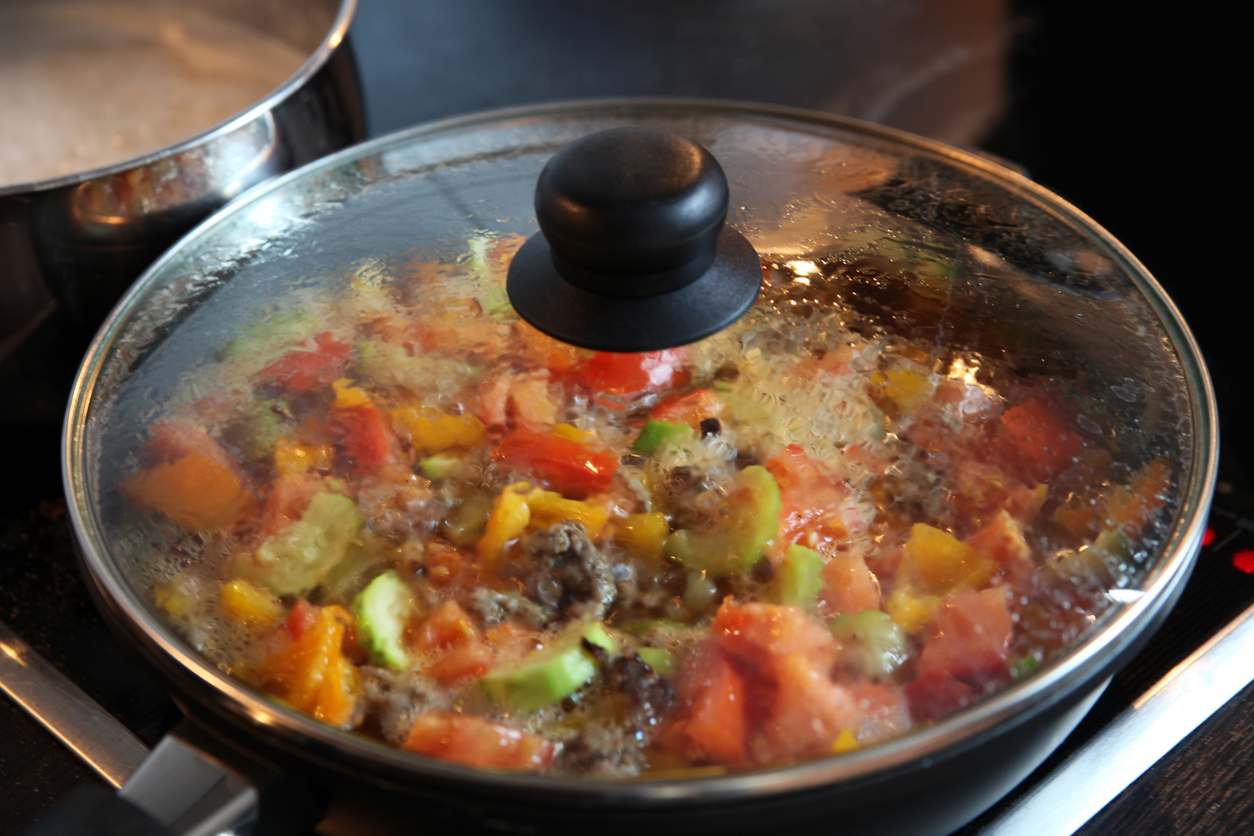Here are our top five tips for saving energy in the kitchen.
- Choose energy efficient appliances
- Be mindful when using appliances
- Don’t leave appliances on standby
- Save energy when you cook
- Save energy when you freeze food
Kitchens are often the hub of a home. Whether it’s your morning coffee routine or prepping a meal, it’s easy to use a lot of energy in our kitchens.
Beyond heating and hot water, the major kitchen activities involve cooling things down (in fridges and freezers) and heating things up (with kettles, ovens and hobs).
And with new devices like smart speakers being added to sideboards and breakfast tables, the energy demand from this one room in the house can creep up.
Here are our top five tips for saving energy in the kitchen.

It’s important to choose the right kitchen appliance. That means doing your research to make sure whichever fridge, washing machine or dishwasher you use is fit for purpose.
Here are two things you should think about when choosing a kitchen appliance:
These two things are related: a product’s energy rating is generally determined by its size. So, if you’re looking at two A-rated products of the same type but one is much bigger, that’s the one that uses more energy.
However, you can’t just rely on the energy rating when buying products. If the larger product has a better rating than the smaller one, they might cost similar amounts to run.
It can be tricky to find the right product, but that’s why it pays to look around for the best option for your needs. Get help choosing energy efficient appliances.
Some kitchen tools are hard to live without. They make our lives easier and make the chores you might dread more convenient. But some small changes in how you use your appliances could help you save money in the long term.
Making a cuppa? By only filling the kettle with the water you need, you can save £10 a year in Great Britain (GB) and £12 in Northern Ireland (NI).
During the summer, make the most of that warmth and get the sun to help with the washing. Drying your clothes outside instead of using a tumble dryer can save £50 a year in GB and £60 in NI.
And only using the washing machine or dishwasher for full loads helps save energy too, lowering your electricity bills. By doing one fewer load of washing a week and washing at 30°C, you can save £24 a year in GB and £30 in NI.
Small changes add up. See what else you can do to save energy around the home.
Some kitchen appliances, like fridge-freezers, need to be always on. But for products that don’t need to be on 24/7, switching them off standby can help save energy. These include:
Depending on the products you have, you could save £45 a year in GB and £55 in NI by switching all devices in your home off standby.
Getting into the habit of flicking the switch when you’re done using the kettle, for example, pays. If you’re not sure whether a device should be switched off or not, check the manufacturer’s instructions.
We might not be able to help with a recipe, but we can offer advice when it comes to how you heat your food.
How much energy you use while cooking depends on what you’re cooking and how you cook it. Thankfully, our experts have looked at how much it costs to use different cooking appliances like air fryers, microwaves and ovens.
But regardless of what you use, there are some useful tips you should keep in mind to save energy while cooking:
So, you’ve bought an appropriately sized, energy-efficient freezer. What else can you do to avoid using more energy than you need?

Energy efficiency doesn’t stop at appliances. Lighting can account for 15% of a home’s electrical demand, so it’s worth keeping them in mind. Whether it’s swapping to LED bulbs or remembering to turn lights off when they’re not needed, read our advice about energy efficient lighting.
Here are our energy experts' findings to help answer which is cheaper: an air fryer vs oven.
When looking for energy efficient appliances, check the energy ratings label and consider the size of the appliance you need.
Smart meters are a central part of a modern energy network. They let you track your energy use and can help balance…
Last updated: 28 June 2024